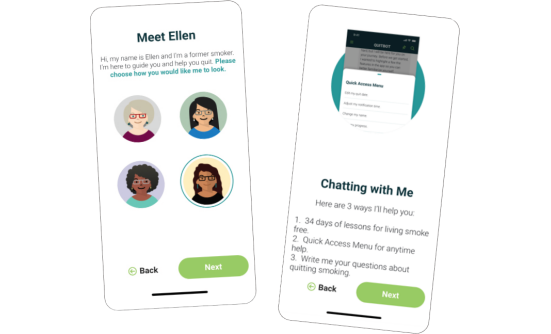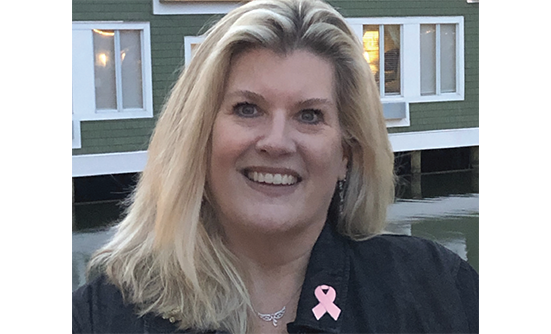
Alcohol has been a fixture in our society for so long that it seems to fly under the radar when considering a healthy lifestyle. Being “old enough to drink” is often seen as a mark of maturity and a cause for celebration, and what better way to celebrate with friends or family than raising your glass?
We’ve grown so accustomed to raising our glasses that we refuse to look at what consuming alcohol may be doing to our bodies. In college and beyond, binge drinking has become the norm, and entertainment of all forms often normalizes alcohol consumption by featuring social drinking. Also, we are all bombarded by alcohol ads on TV, radio, podcasts, and elsewhere.
We may assume that the worst thing that can happen with alcohol consumption is alcohol poisoning or drunk driving, ignoring the insidious health consequences that may loom without ever getting behind the wheel while intoxicated.
According to the American Institute for Cancer Research, alcohol, or ethanol, is a carcinogen, and research shows that consuming alcohol significantly increases the risk of several types of cancer.1
Heart Health Myths
Furthermore, alcohol consumption, particularly red wine, has often been associated with improving heart health, but this is a dangerous misconception, because “guidelines focused on heart health emphasize that you should not drink alcohol specifically in hopes of cardiovascular benefits.”1 In fact, the supposed heart health benefits may not even exist. Binge drinking especially raises the risk of heart disease.1
Consuming alcohol to improve heart health is similar to smoking cigarettes to reduce stress: the cancer risk largely outweighs the secondary benefit people think they may be achieving. In fact, excessive alcohol drinking increases blood pressure and blood triglyceride levels, which raise the risk of heart disease.2 There are many ways to attain cardiovascular benefits without increasing the risk of cancer.
Risk for Certain Types of Cancer
There is strong evidence that alcohol consumption increases the risk of several types of cancer, including1:
- Breast cancer
- Colorectal cancer
- Esophageal cancer
- Head and neck cancers
- Liver cancer
- Mouth, pharynx, and larynx cancers
- Stomach cancer.
According to the American Institute for Cancer Research, there is no safe level of regular alcohol consumption, and even less than 1 drink a day increases the risk of breast and esophageal cancers.1
Women often worry about certain foods being “estrogenic” because of the link to breast cancer, but they overlook the effect of alcohol: “Increased circulating estrogen seems to be an important reason for alcohol’s link to breast cancer, and explains why the risk of estrogen receptor-positive breast cancer…particularly rises with alcohol consumption.”1
A standard drink of alcohol contains 14 grams of pure alcohol, or 5 ounces of wine, 12 ounces of beer, or a 1.5-ounce shot of 80-proof liquor, and “just 10 grams of pure alcohol consumed daily raises the risk of premenopausal breast cancer by 5%, and the risk of postmenopausal breast cancer by 9%.”1
Furthermore, accumulating evidence also shows that alcohol consumption is associated with increased risks of melanoma and of prostate and pancreatic cancers.3,4
Risk Assessment
The more alcohol one consumes, the higher the risk of cancer.
Moderate drinkers have “1.8-fold higher risks of oral cavity (excluding the lips) and pharynx (throat) cancers and 1.4-fold higher risks of larynx (voice box) cancers than non-drinkers, and heavy drinkers have 5-fold higher risks of oral cavity and pharynx cancers and 2.6-fold higher risks of larynx cancers.”3,5
Adding tobacco use to alcohol consumption makes these cancer risks substantially higher.6
Alcohol consumption of any level increases the risk of a type of esophageal cancer called esophageal squamous cell carcinoma, and compared with no alcohol consumption, this risk ranges “from 1.3-fold higher for light drinking to nearly 5-fold higher for heavy drinking.”3,5
In addition, “people who inherit a deficiency in an enzyme that metabolizes alcohol have been found to have substantially increased risks of esophageal squamous cell carcinoma if they consume alcohol.”7
Heavy alcohol consumption is associated with an approximately 2-fold increased risk of 2 types of liver cancer—liver cancer and intrahepatic cholangiocarcinoma.3,5,8,9
Light drinkers have a slightly increased (1.04-fold higher) risk of breast cancer than non-drinkers, moderate drinkers have a 1.23-fold higher risk, and heavy drinkers have a 1.6-fold increased risk.3,5
An analysis of data for 88,000 women who participated in 2 American studies concluded that for “women who have never smoked, light to moderate drinking was associated with a 1.13-fold increased risk of alcohol-related cancers (mostly breast cancer).”10
Moderate-to-heavy alcohol consumption is associated with 1.2- to 1.5-fold increased risks of colon cancer and anal cancer compared with no alcohol consumption.3,5,11
How Alcohol Increases Cancer Risk
According to the National Cancer Institute, there are several explanations of how alcohol increases the risk of cancer.12 One explanation is that the metabolizing of ethanol in alcoholic drinks produces acetaldehyde, “which is a toxic chemical and a probable human carcinogen” and can damage the DNA and proteins in our body.12 Another explanation is that alcohol generates “reactive oxygen species…which can damage DNA, proteins, and lipids in the body through a process called oxidation.”12
A third explanation is that alcohol damages “the body’s ability to break down and absorb nutrients that may be associated with cancer risk, including vitamin A; nutrients in the vitamin B complex, such as folate; vitamin C; vitamin D; vitamin E; and carotenoids.”12
And as noted earlier, alcohol can increase blood levels of estrogen, which is “a sex hormone that is linked to the risk of breast cancer.”12
Finally, alcoholic drinks may also “contain a variety of carcinogenic contaminants that are introduced during fermentation and production, such as nitrosamines, asbestos fibers, phenols, and hydrocarbons.”12
Genetic Influence
A person’s genetic makeup can also influence the risk of alcohol-related cancer. One of the ways the body breaks down alcohol is through an enzyme called alcohol dehydrogenase (or ADH), “which converts ethanol into the carcinogenic metabolite acetaldehyde, mainly in the liver.”12
As an example, many people of East Asian descent have a version of the gene linked to the ADH enzyme that turns ADH into a “superactive” enzyme, thereby speeding up the conversion of ethanol (or alcohol) to the carcinogenic acetaldehyde.12
Few studies have investigated the genetic link so far. A study of Japanese people showed that those with the “superactive” form of ADH “have a higher risk of pancreatic cancer than those with the more common form of ADH.”13
Awareness Is the First Step
So how do we stop drinking? First, we need to raise public awareness of the connection between alcohol drinking and cancer.
A 2019 survey showed that 45% of Americans were aware of the link between alcohol consumption and cancer compared with only 39% of Americans who were aware of this in 2017.14 Although this may indicate that awareness is slowly rising, these numbers are nowhere nearly as high as the percentage of Americans who now know that cigarette smoking causes cancer (89%).14 To deal with any problem, we must first acknowledge that a problem exists.
“There is an enormous opportunity to prevent future cancer cases,” said Nigel Brockton, PhD, Vice President of Research at the American Institute for Cancer Research. “Many people believe that pesticides or air pollution are the major factors in cancer risk, but modifiable lifestyle factors play a bigger role. Diet, activity, body weight and alcohol are the largest drivers of cancer risk and are under our control.”14
To raise awareness to this link, there have been suggestions for new policies, such as adding warning labels to alcohol products, making public drinking guidelines available, and banning outdoor alcohol advertising.
A recent survey showed that most Americans support adding warning labels (65.1%) and drinking guidelines (63.9%), but only 34.4% support banning outdoor alcohol advertising.15 Americans who say that alcohol has no cancer link are less in favor of these 3 measures, and heavy drinkers are less likely to support these measures than non-drinkers.15
Making public the increasing data demonstrating a direct causal link between alcohol and cancer may help to raise awareness to this. A study published in 2021 showed that as many as 741,300 people worldwide, or 4% of the world’s 2020 newly diagnosed cases of esophageal, mouth, larynx, colon, anal, liver, and breast cancers can be attributed to alcohol drinking.16
Men accounted for three-quarters of these alcohol-related cancers, and cancers of the esophagus, liver, and breast were the most common types of cancer.16 Heavy drinking contributed to 46.7% of cases, and moderate drinking contributed to 13.9% of cases.16
In the United States alone, drinking alcohol contributed to more than 75,000 cancer cases and almost 19,000 deaths from cancer every year between 2013 and 2016.15
Reversing the Effects of Alcohol
Although this information may be overwhelming, the best way to reverse the risk of cancer caused by drinking is to stop drinking. The sooner one stops, the better outcomes can be expected, because research shows that the healing process takes years, and there is no immediate reduction in cancer risk.17
An analysis of studies about alcohol cessation showed that it takes 15 years of alcohol abstention for the risk of esophageal cancer to decrease quickly and significantly: within the first 2 years after quitting drinking, however, the risk increases significantly.17
The increased risk of head and neck cancers is only reduced after 10 years of cessation, and after 20 years of cessation, the risks for esophageal cancer and for head and neck cancers were no greater than the risk of never-drinkers.17
By now, most of us are aware of the importance of eating a healthy diet and getting enough exercise, and we are aware of the carcinogenic effect of smoking cigarettes. It is time that we view drinking alcohol through the same sober lens.
The carcinogenic effect of alcohol consumption is becoming apparent through a vast accumulation of data, so the next time you want to raise a glass in celebration of something, remember that you may be fostering unhealthy habits.
Drinking alcohol is not harmless, and making a habit of it may have drastic consequences on one’s health.
The American Institute for Cancer Research has an online resource called Cancer Health Check (www.aicr.org/cancer-health-check), which offers quick suggestions on how to steer yourself toward a healthier lifestyle.
References
- American Institute for Cancer Research. Alcohol: Drinking Increases Cancer Risk. Updated March 31, 2021. www.aicr.org/cancer-prevention/food-facts/alcohol.
- Collins K. American Institute for Cancer Research. Mixed Messaging on Red Wine: Separating Myth from Fact. Updated April 19, 2022. www.aicr.org/resources/blog/mixed-messaging-on-red-wine-separating-myth-from-fact.
- Bagnardi V, Rota M, Botteri E, et al. Alcohol consumption and site-specific cancer risk. British Journal of Cancer. 2015;112(3):580-593.
- Zhao J, Stockwell T, Roemer A, Chikritzhs T. Is alcohol consumption a risk factor for prostate cancer? BMC Cancer. 2016;16(1):845.
- LoConte NK, Brewster AM, Kaur JS, et al. Alcohol and cancer: a statement of the American Society of Clinical Oncology. Journal of Clinical Oncology. 2018;36(1):83-93.
- Hashibe M, Brennan P, Chuang SC, et al. Interaction between tobacco and alcohol use and the risk of head and neck cancer. Cancer Epidemiology, Biomarkers & Prevention. 2009;18(2):541-550.
- Wu C, Wang Z, Song X, et al. Joint analysis of three genome-wide association studies of esophageal squamous cell carcinoma in Chinese populations. Nature Genetics. 2014;46(9):1001-1006.
- Grewal P, Viswanathen VA. Liver cancer and alcohol. Clinics in Liver Disease. 2012;16(4):839-850.
- Petrick JL, Campbell PT, Koshiol J, et al. Tobacco, alcohol use and risk of hepatocellular carcinoma and intrahepatic cholangiocarcinoma. British Journal of Cancer. 2018;118(7):1005-1012.
- Cao Y, Willett WC, Rimm EB, et al. Light to moderate intake of alcohol, drinking patterns, and risk of cancer. BMJ. 2015;351(8022):h4238.
- Fedirko V, Tramacere I, Bagnardi V, et al. Alcohol drinking and colorectal cancer risk. Annals of Oncology. 2011;22(9):1958-1972.
- National Cancer Institute. Alcohol and Cancer Risk. Updated July 14, 2021. www.cancer.gov/about-cancer/causes-prevention/risk/alcohol/alcohol-fact-sheet.
- Kanda J, Matsuo K, Suzuki T, et al. Impact of alcohol consumption with polymorphisms in alcohol-metabolizing enzymes on pancreatic cancer risk in Japanese. Cancer Science. 2009;100(2):296-302.
- American Institute for Cancer Research. Survey Finds Alarming Gaps in Americans’ Knowledge of Major Cancer Risk Factors. February 3, 2022. www.aicr.org/news/survey-finds-alarming-gaps-in-americans-knowledge-of-major-cancer-risk-factors.
- Seidenberg AB, Wiseman KP, Eck RH, et al. Awareness of alcohol as a carcinogen and support for alcohol control policies. American Journal of Preventive Medicine. 2022;62(2):174-182.
- Rumgay H, Shield K, Charvat H, et al. Global burden of cancer in 2020 attributable to alcohol consumption. Lancet Oncology. 2021;22(8):1071-1080.
- Rehm J, Patra J, Popova S. Alcohol drinking cessation and its effect on esophageal and head and neck cancers. International Journal of Cancer. 2007;121(5):1132-1137.
Key Points
- The more one consumes alcohol, the greater the risk of cancer
- Less than 1 standard drink a day raises the risk of premenopausal breast cancer by 5% and the risk of postmenopausal breast cancer by 9%
- As many as 741,300 people worldwide of those newly diagnosed in 2020 with esophageal, mouth, larynx, colon, anal, liver, or breast cancers were caused by alcohol drinking
- In the United States, alcohol consumption contributed to more than 75,000 cancer cases and almost 19,000 deaths from cancer every year between 2013 and 2016
- Reversing the cancer-related risk from drinking alcohol takes many years, and stopping alcohol use does not immediately reduce the risk of cancer
- It takes 15 years of alcohol abstention for the risk of esophageal cancer to decrease significantly, and 10 years to reduce the risk of head and neck cancers















